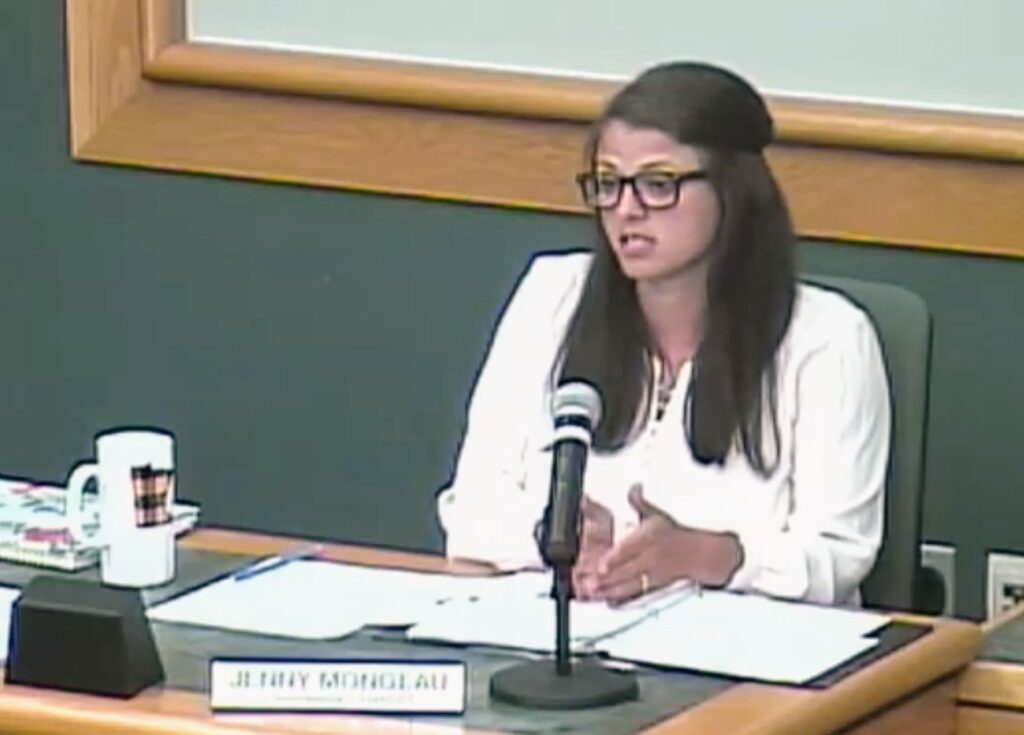
Commissioner Jenny Mongeau provides planning goals for CARES dollars.
Karen Newman
At their July 28 meeting, Clay County Commissioners approved a six-category framework to be utilized for planning as Clay County’s $7.8 million CARES Act dollars are allocated. County Administrator, Stephen Larson, reporting for the Corona Virus Relief Fund Committee, displayed a chart illustrating six priorities. The planning framework designates fields in need of financial relief from CARES dollars due to negative impacts of Covid-19 coronavirus pandemic. The areas designated are:
*Small Businesses
*Community Resiliency
*Public Health Outreach and Service
* County Infrastructure
*County Reimbursements for COVID-19 Responses
·*Small Communities
Larson said, “We met several times over the past few weeks. We realized quickly that this is a fairly huge undertaking.” He continued by explaining that meetings of the Relief Fund Committee reveal that prompt action is required based on the great need for funding in Clay County communities and spending deadlines of November 15 for cities and townships and December 15 for the county. The committee continues meeting to make sure that dollars are allotted to areas where they are most needed while ensuring that allocations meet state and federal guidelines to comply with a future audit.
The committee decided that small business relief should be addressed first. All the cities in Clay County were invited to a meeting to discuss CARES fund small business relief allocations. Larson reported a positive meeting with good attendance from Clay County cities. Commissioner Kevin Campbell added that all the communities indicated the need for small business relief at that meeting. He said, “Speaking on behalf of Commissioner Mongeau and myself, once we come up with the parameters of who would qualify, whatever that dollar amount might be; once we get a better idea of how many businesses we are dealing with, our goal is that every Clay County small business to be treated the same way.”
Questioned by commission members, Commissioner Mongeau explained that due to the enormity of the tasks required to follow guidelines in fund allocation, small businesses were prioritized. “We know that because of the executive order, businesses were restricted from operating.” She noted that schools can’t finalize their lists of need for fall until guidance from the state is received. Senator Campbell explained that meeting to address small business needs was only the first meeting related to the six-part funding framework. The remaining five areas will be handled in the same way as small business in the future within the CARES application regulations and deadlines.

